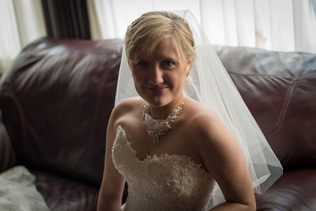I'm sure my friends find it irritating when I try to relate to their troubles or suffering through my own experiences. But today, as I began Hell is a Very Small Place, I couldn't suppress that tendency of mine. It is a tendency that allows me to feel and understand, very deeply, the problems of our criminal justice systems and the current human rights violations we are allowing.
My transplant experience woke me to everyone's ultimate lack of control of what will, what is, and what isn't; my utter humanness and fragility; the horrible reality of human inaccuracy -- how wrong our perceptions can be and how easily the human mind can be altered by experience, environment, and exposure. I could not speak with the ventilator, and just for that amount of time I lost my sense of personhood, and it left me to internalize much of what I was experiencing. I tried to scream once just for the sake of expressing how restless I felt, but all I could do was open my mouth.
One night a week after surgery, in that hospital bed in the ICU, where I was confined by my weak body, chest tubes, and IVs, I imagined myself, so vividly, sliding out of the sheets and walking down the hall. I was only able to wiggle my right leg over a few inches before I realized I couldn't even sit up on my own. That night I had a tangible nightmare that I crawled through a rainstorm and found a silver crucifix in a puddle, and a voice said, "FIND JESUS," and I was so thirsty but could not catch the rain in my mouth. Water, water everywhere, and not a drop to drink. I am completely blocked and unable to believe in god; I'm just not wired for it. After a hopeful and ardent stint in sixth grade, I discovered faith like that just didn't work for me. Anyway, I don't know what that nightmare meant but I think of it from time to time. I think it was my brain preparing for a void that was going to occur after the transplant, after all that medical trauma, after I had come to terms with death and had to become so indifferent to loss in order to cope. Or maybe it was my body complaining that my mouth was terribly dry. Either way, I emerged from my transplant experience restless, unsettled, and unable to sit still long enough to recall these details much.
I know that my experience with powerlessness, immobility, loss of self, uncertainty, loss of memory and loss of a sense of reality did not come close to what it is to be in solitary confinement, and not just because I had many things that someone in solitary does not (a loving family sitting with me all day, an end in sight, an unbroken trust that I would be taken care of, a far more comfortable and sanitary environment, people who wanted me to stay alive, to name a few differences). But simply reading the Foreword and Introduction of Hell is a Very Small Place was enough to unearth a feeling that I had long forgotten: I know what it is to not feel human anymore. To feel oneself disappearing, knowing that "self" is a construct that can be torn down more easily than we realize. To brutally comprehend one's own insignificance. To face the arbitrariness of that sliver between life and death.
There must be something that you, too, have experienced that can act as a magnifying glass, a translation; something that will give you a deeper understanding rather than a simple recognition that our prison system is currently violating human rights. You must have something in your arsenal of experience that you shut your eyes to, that thing you wouldn't wish on your worst enemy. Now multiply it; imagine experiencing it at the same intensity and uncertainty for days that turn to months that turn to years, and you may have a glimpse of what solitary confinement is.



 RSS Feed
RSS Feed